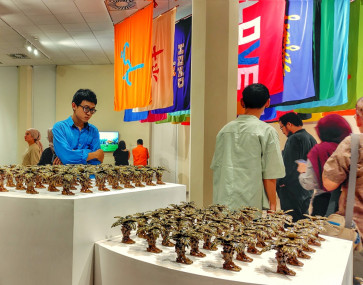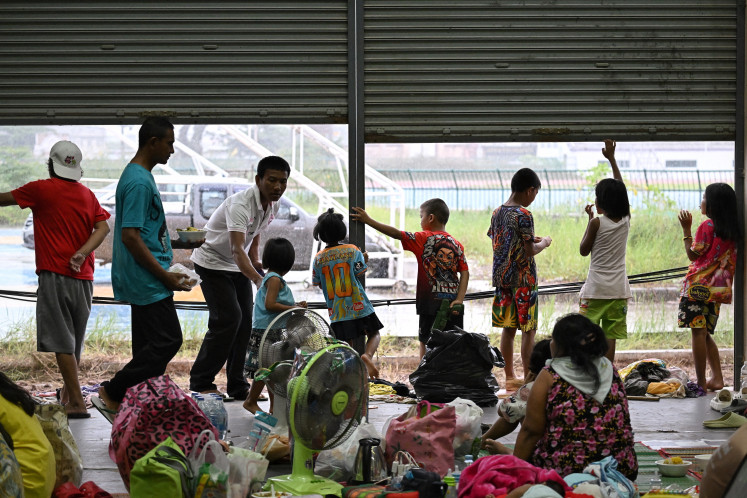Popular Reads
Top Results
Can't find what you're looking for?
View all search resultsPopular Reads
Top Results
Can't find what you're looking for?
View all search resultsIndonesia lags behind in eradication of HPV virus
Celebrity Julia Perez, who is now in critical condition from late stage cervical cancer, and has attracted sympathy from top public figures, has cast a spotlight on the need for the country to eradicate the virus that triggers the disease
Change text size
Gift Premium Articles
to Anyone
C
elebrity Julia Perez, who is now in critical condition from late stage cervical cancer, and has attracted sympathy from top public figures, has cast a spotlight on the need for the country to eradicate the virus that triggers the disease.
Perez was diagnosed with stage 2A cancer in 2014 and had been in remission since January 2015 after receiving treatment in Singapore. However, earlier this year the cancer came back and she was treated at Cipto Mangunkusumo General Hospital for three months, drawing declarations of sympathy from Jakarta Governor Basuki “Ahok” Tjahaja Purnama and other public figures and celebrities.
According to 2002 World Health Organization (WHO) data, one woman dies every hour from cervical cancer. “Out of every 1,000 women we screen, we diagnose one woman with cervical cancer,” Indonesian Working Group on Human Papillomavirus (HPV) chairman Andrijono said during the launch of the Indonesian Coalition to Prevent Cervical Cancer, in Central Jakarta recently.
He said cervical cancer, the third most common type of cancer to kill women in Indonesia, was the only preventable form of the disease because doctors already understand its causes and how to prevent and screen for it. “Unfortunately, prevention with vaccine and screening are not optimally applied in Indonesia,” he said.
Cervical cancer is caused by Human Papillomavirus (HPV), which spreads through skin-to-skin contact.
Nearly all cervical cancer is due to two specific types of the virus, HPV16 and HPV18, which account for 70 percent of all cases.
“The HPV vaccine blocks the HPV16 and HPV18 types and can prevent cervical cancer,” Andrijono explained.
In 2016, the Jakarta Health Agency initiated a HPV vaccination pilot project to immunize 5th grade girls with further vaccination drives planned for Yogyakarta and East Java this year.
Adrijono said the vaccination should be given to children aged between 9 and 13 years, as children within that age range respond better to the vaccination, making the program more cost effective.
“At the ages of 9 to 13, we only need to give two injections, while older girls require three injections. Married and sexually active adults have to be screened before the vaccination to make sure they have not contracted the virus previously,” he explained.
Head of Disease Prevention and Control of the Jakarta Health Agency, Widyastuti, said that 92 percent of schoolgirls in the 5th grade of elementary schools in Jakarta have participated in the vaccination program, which was funded by the Health Ministry in early October 2016.
“Experts showed us the study for the vaccination and we were interested and already budgeted for vaccination before the Health Ministry chose Jakarta for the pilot project,” she told the Post.
Currently HPV vaccination, which is still in the pilot project and data collection phase, is not included in the national immunization program.
The immunization will also be given in Gunung Kidul and Ponorogo regency of Yogyakarta, and Surabaya in East Java.
Andrijono said that Indonesia lags behind with its HPV vaccinations as 64 other countries, including the United States, Australia and Canada, have given free HPV vaccination to children for the last 10 years. “In those countries, they have seen a reduction in the prevalence of cervical cancer,” he said.
He emphasized that cervical cancer is a preventable disease. “We don’t want Indonesia to be the only country yet to eradicate cervical cancer 20 years from now,” he said. (dis)










